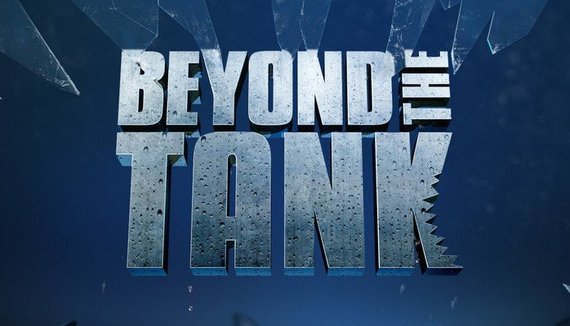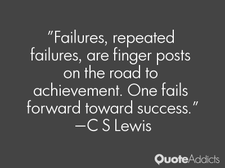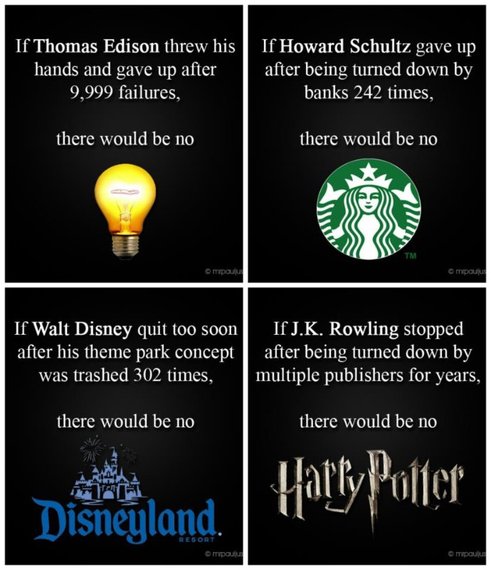
The negotiations end. The deal is struck. Everyone hugs and high-fives.
Now what?
In my article, In The Shark Tank It's All About Valuation, I discussed how the Sharks arrive at their valuations. But the show also offers insights into other aspects of business while providing an entertaining glimpse into the world of entrepreneurship and venture capital.
So what happens to the companies after the deal is struck - or not?
Expanding on the in-show updates, the Shark Tank "mini-series" Beyond The Tank, chronicles what happens after the TV appearances, when the entrepreneurs (and Sharks) got down to business. While only a handful of companies are profiled in this "mini-series," there are some very practical business lessons to be gleaned from their stories.
- 1. The Importance of a Consistent Brand
A key element of differentiating from the competition, a powerful brand can illicit loyalty from satisfied customers and potentially allow a company to charge a higher price relative to its competitors.
Brand recognition is built through more than just choosing the right name for a company or designing a memorable logo. A brand symbolizes what the company is known for or wants to be known for and that stems from every product as well as every employee.

Yes, each employee is an embodiment of a company's brand and they deliver the "message" to the customers and suppliers in their words and actions. Think about a time when you called a company's customer service line, or walked into a retail location and had to deal with an employee with a poor attitude. How did that make you feel about the company?
The brand is as much a function of corporate culture and a human capital strategy as it is a marketing strategy. The message of a company's brand must be consistent at every touch-point with the customer.
A brand's message is ultimately associated with the customer experience and if a company is not managing its brand in those terms, consumers will surely let them know about it.
- 2. "Failure" is a Relative Term
Despite well-scripted and passionate pitches to investors, a company still might not obtain funding. For example, according to Entrepreneur Media, only about a half of the pitches on Shark Tank resulted in deals, and a large percentage of those deals never actually closed. In the "real world," published statistics suggest that far fewer startups actually get funded.
While not getting funded can be a devastating blow, sometimes with the benefit of hindsight, it can become apparent that it wasn't such a bad thing after all. This is because in business, sometimes "No" really means "Not Now" or "You're Not Quite Ready." There are many reasons why investors will pass on a deal and there is an axiom that some of the best deals are the ones that you don't do.
However, this is also true from the company's side of the pitch.

Businesses with great products will fail, but it's how people respond to failure that ultimately determines the final outcome. Resilient determination will often lead people back to the drawing board to get it right (or even better) the next time.
Many great companies and products have gotten it right the second time. (CLICK HERE to learn about the colossal failure that resulted in the Post-It Note.)
3) Learn to Let Go
An entrepreneur's passion is a critical component to a company's success. That passion produced the vision and the product - as well as providing the determination to persist and overcome adversity. But sometimes, that intangible asset known as passion, can become a liability.

When a company reaches a certain size, it inevitably becomes impossible for the entrepreneur to "wear all of the hats" - or even just their most important hat. When the success of the business prevents the entrepreneur from keeping up with the business, it's time to let go. Just a little.
Hiring good people to help the entrepreneur is not a bad thing and it doesn't diminish the entrepreneur's contributions. It will actually free them up to do more. They key is to find the right-fit "kindred spirits" who can bring their creativity and passion to the business. And it's always a good idea to hire someone who's strengths help to mitigate the entrepreneur's weaknesses.
4. $mart Money Can Have A $hort Memory
Friends and family who invest in a business often don't understand what they're buying into and won't likely quibble over valuation. Sometimes the investment is viewed as nothing more than a "donation" with no expectation of getting their money back. At the other extreme, the investment can be viewed as a "lottery ticket" with the hope of striking it rich. In other words, friends and family don't usually have a specific rate of return or timeline in mind when they write the check. However, if the company fails, the founders risk losing their friends and family in addition to their business.
"Smart Money" from knowledgeable investors does come with an expectation of a return on the investment - and the timeline for realizing that return can become pretty short; pretty fast, if the business doesn't perform up to expectations. Investors can, and will, cut their losses if it becomes apparent that they will not earn their required rate of return.
With a demonstrated history of execution in its past, however, a company might gain additional credibility and, as a result, a longer runway with investors regarding its ability to perform in the future.
If someone has "done it before," there is often a predisposition to believe that they will do it again. This cuts both ways, however; from the positive as well as the negative perspective, and it will have an impact on the cost of capital.
Final Thoughts
These lessons from Beyond The Shark Tank are applicable to companies of all sizes and all stages of development - not just start-ups. Even the largest publicly traded companies face branding challenges and experience their investors jumping ship if quarterly earnings expectations are missed by the smallest of margins.
Great companies are often founded on great ideas, but great ideas are not a guarantee for raising capital; nor is raising capital a guarantee of success.
And yes, in the Shark Tank it's still all about valuation.

Thanks for reading - If you enjoyed this article, please click the Like button above and let me know! (and if you like it, why not share it?)
You might enjoy these other insights from Dave.
This article was also published on LinkedIn Pulse.
About the Author:
Dave Bookbinder is a Director of Valuation Services at GBQ Consulting where he helps his clients with the valuation of businesses, intellectual property, and complex financial instruments. More than a valuation expert, Dave is a proactive problem solver who consults with companies of all sizes, both privately held and publicly-traded. Dave strives to lend his business experiences to help people with a variety of matters. For more about Dave, visit his LinkedIn profile.
Connect with Dave on LinkedIn and follow Dave on Twitter @dbookbinder
-- This feed and its contents are the property of The Huffington Post, and use is subject to our terms. It may be used for personal consumption, but may not be distributed on a website.
